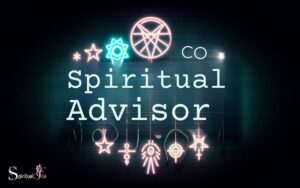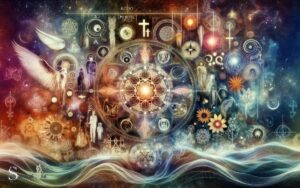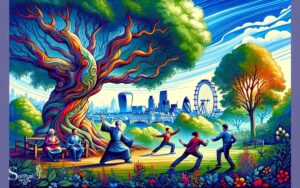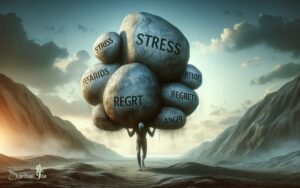Is Sleep Paralysis a Spiritual Thing: No!
Sleep paralysis is not primarily a spiritual event; it is a recognized medical condition. It occurs when a person experiences a temporary inability to move or speak while falling asleep or upon waking.
This phenomenon is linked to the REM (rapid eye movement) stage of sleep and is considered a biological, rather than spiritual, occurrence.
Sleep paralysis typically happens during transitions in and out of REM sleep. During REM, your brain is very active, and dreams occur.
The body’s muscles are intentionally paralyzed during this stage to prevent you from physically acting out your dreams.
However, if you become conscious before the REM cycle has finished, you may find yourself aware but temporarily unable to move or speak.
This can be a frightening experience and is often accompanied by hallucinations, which can feel very real.
Some cultures and individuals do interpret sleep paralysis through a spiritual or supernatural lens, often attributing the experience to demonic possession or other otherworldly entities. However, these interpretations are not supported by scientific evidence.
Here are some factors that can increase the likelihood of experiencing sleep paralysis:
While sleep paralysis can be unsettling, it’s a common sleep disorder with biological underpinnings and is not necessarily an indication of spiritual occurrences.
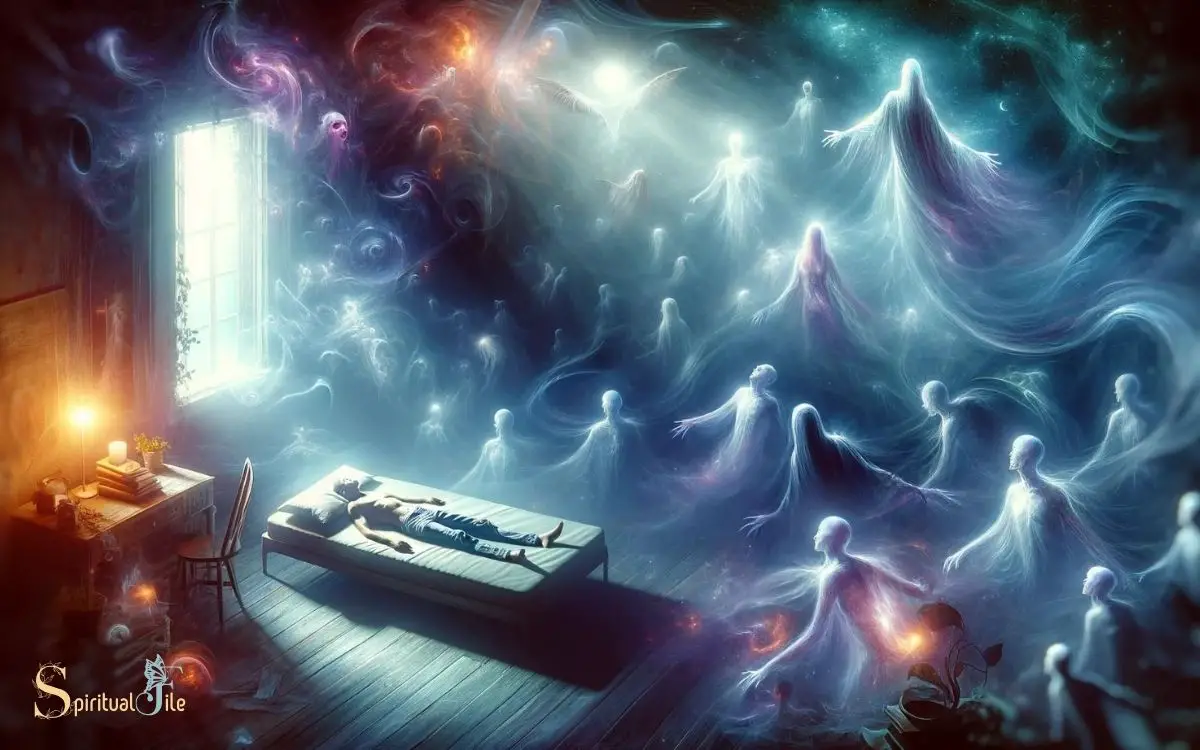
Key Takeaway
Historical and Cultural Perspectives
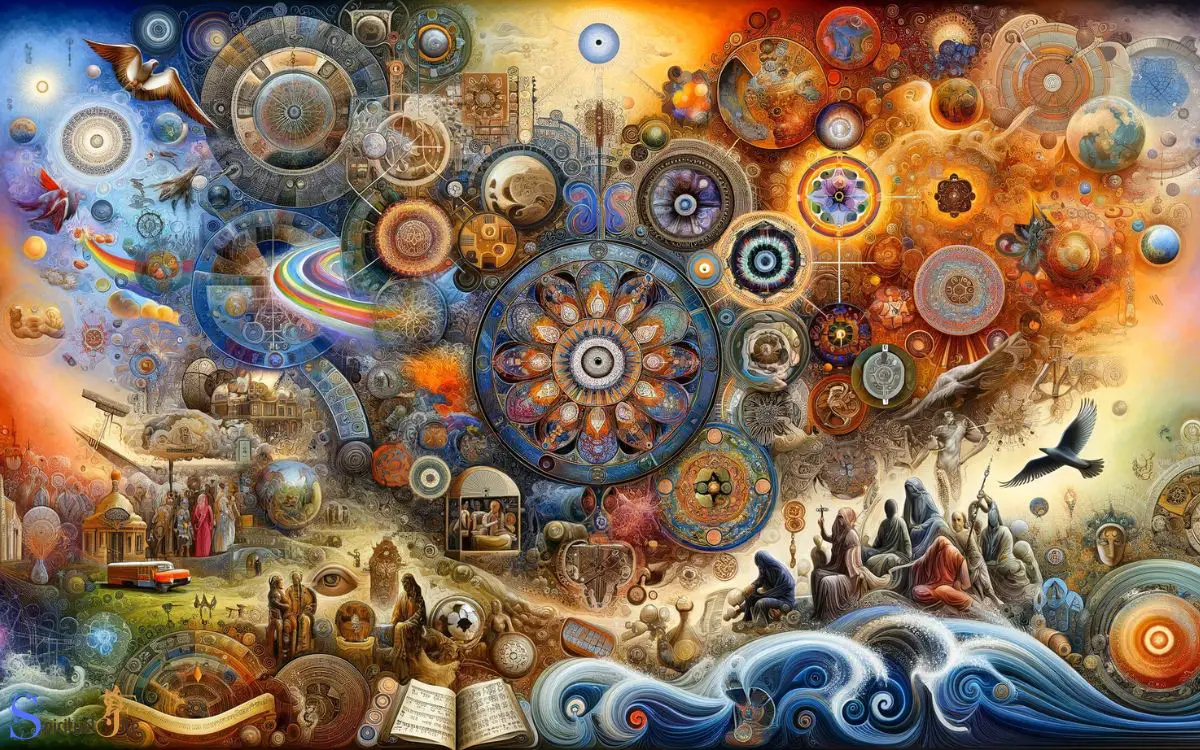
I’ll explore sleep paralysis from historical and cultural perspectives to understand its significance beyond medical explanations. Throughout history, various cultures have interpreted sleep paralysis in different ways.
For example, in ancient Greece, it was often attributed to demonic visitations or the work of malevolent spirits. In the African American community, the phenomenon has been linked to the concept of “the witch riding your back.”
Similarly, in Icelandic folklore, sleep paralysis is connected to creatures like the “mara” or “night-mare” that sit on the sleeper’s chest, causing the sensation of suffocation.
Understanding these cultural interpretations can provide valuable insights into the human experience of sleep paralysis and the significance it holds for different societies.
By delving into these historical and cultural perspectives, we can gain a deeper appreciation for the broader impact of sleep paralysis beyond its medical definition.
Biological and Psychological Explanations
I’ve always been intrigued by the intersection of biological and psychological explanations for sleep paralysis. It’s fascinating to explore the scientific causes of this phenomenon and how it affects individuals on a psychological level.
Additionally, understanding the cultural and spiritual interpretations adds a rich layer to the overall discussion.
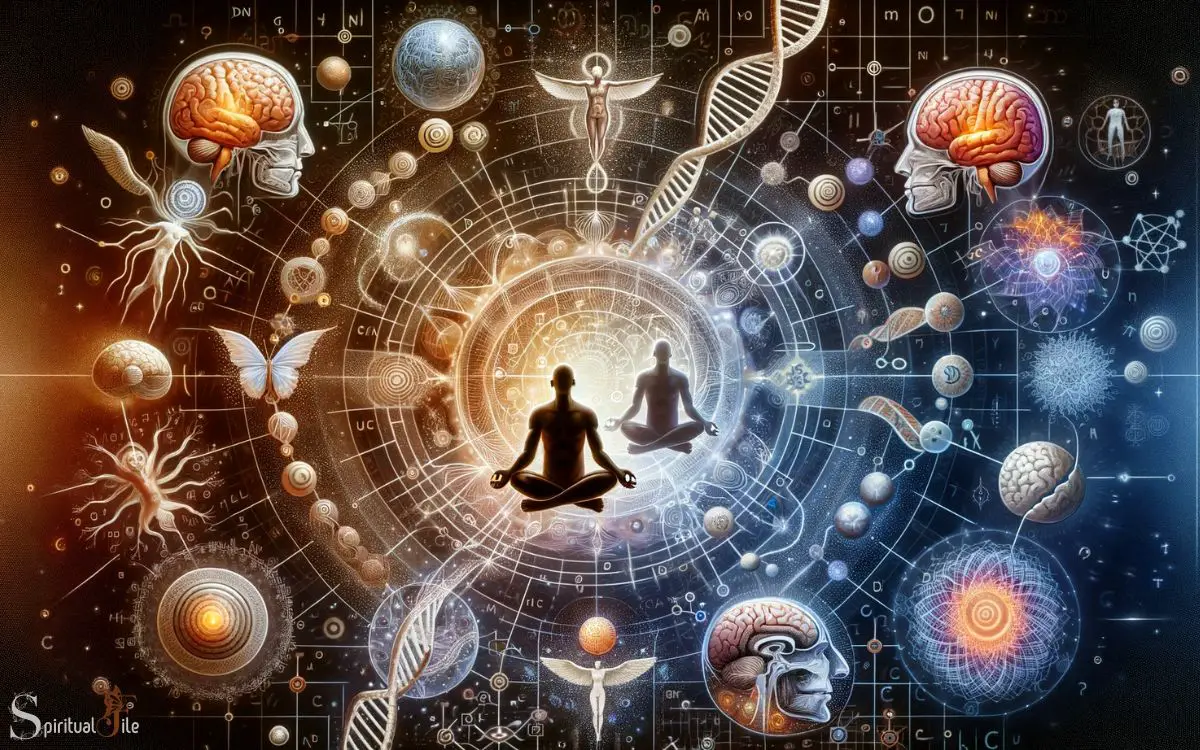
Scientific Sleep Paralysis Causes
During my research, I’ve come across various scientific explanations for sleep paralysis, which arise from both biological and psychological factors.
Biological Factors:
- Disrupted REM Sleep: Sleep paralysis occurs when the body is temporarily paralyzed during REM sleep to prevent acting out dreams. If this process is disrupted, it can lead to experiencing paralysis while awake.
- Genetics: Some studies suggest a genetic predisposition to sleep paralysis, indicating that certain individuals may be more prone to this phenomenon.
- Neurotransmitters: Imbalances in neurotransmitters like serotonin and dopamine have been linked to sleep paralysis.
These scientific explanations shed light on the physiological and genetic factors contributing to sleep paralysis. Understanding the biological underpinnings of this phenomenon is crucial in comprehending its psychological impact and experiences.
Psychological Impact and Experiences
Experiencing sleep paralysis can be unsettling and disorienting, affecting both my mental state and daily functioning.
The feeling of being awake but unable to move or speak can cause anxiety and fear. It can lead to sleep deprivation and daytime drowsiness, impacting my productivity and mood.
These psychological effects are often compounded by the vivid and frightening hallucinations that accompany sleep paralysis episodes.
Understanding the biological and psychological explanations behind these experiences can provide reassurance and help manage the impact of sleep paralysis on mental well-being.
| Biological Explanations | Psychological Explanations | Coping Mechanisms |
|---|---|---|
| Brain’s REM sleep processes disrupted | Stress and anxiety triggers | Establishing a calming bedtime routine |
| Genetics and family history | Trauma or PTSD | Cognitive behavioral therapy (CBT) |
| Sleep disorders such as narcolepsy | Belief in supernatural causes | Education and awareness about sleep paralysis |
Cultural and Spiritual Interpretations
My cultural background has shaped my understanding of sleep paralysis as more than just a biological or psychological occurrence. In my culture, sleep paralysis is often viewed through a spiritual lens, leading to unique interpretations and coping mechanisms.
Historical Context
- Sleep paralysis has been documented in our cultural history, often linked to supernatural encounters and spiritual awakenings.
Interpretation of Symptoms
- The physical sensations experienced during sleep paralysis are seen as a spiritual visitation or a connection with the spirit world.
Traditional Remedies
- Our cultural practices involve rituals and remedies, such as prayer or seeking guidance from spiritual leaders, to alleviate the impact of sleep paralysis.
Understanding these cultural and spiritual interpretations provides a broader perspective on the phenomenon, enriching the discourse on sleep paralysis. This leads to the crucial discussion of the connection to spiritual beliefs.
The Connection to Spiritual Beliefs
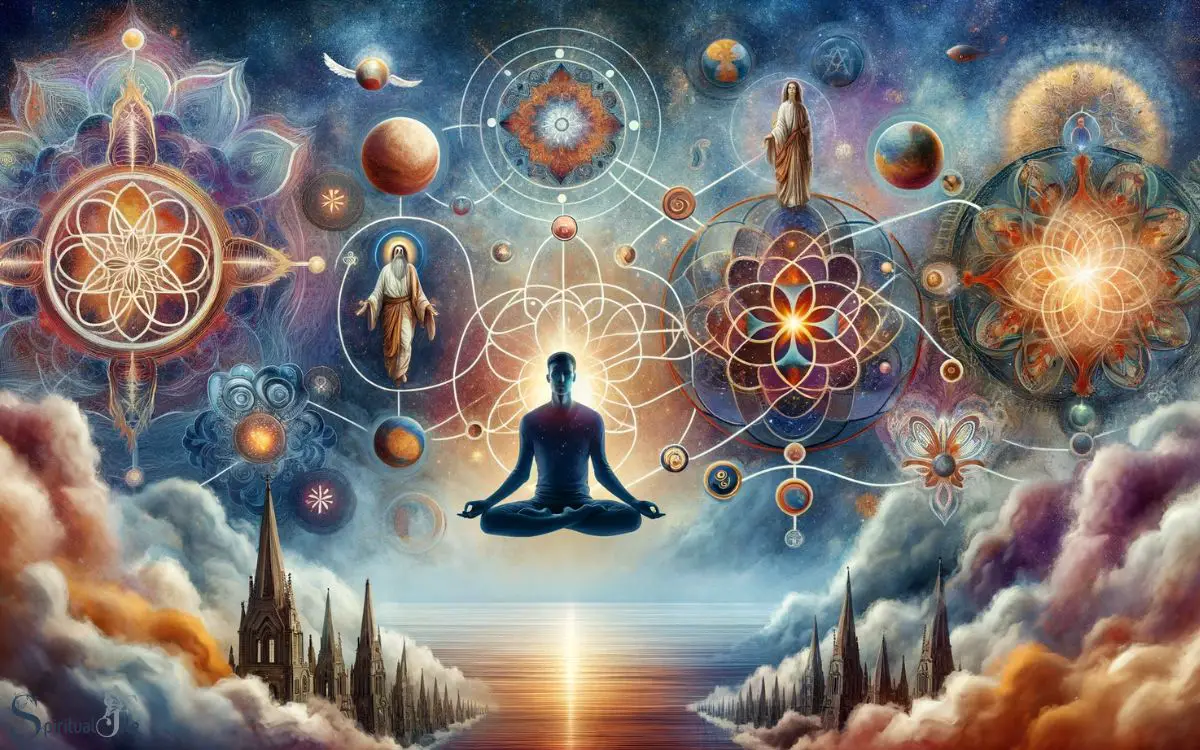
In my experience, sleep paralysis often leads to a profound connection with spiritual beliefs. The intense and often surreal nature of sleep paralysis experiences can prompt individuals to seek spiritual explanations for their ordeals.
When I grappled with sleep paralysis, I found solace in spiritual teachings that provided a framework for understanding and coping with the phenomenon.
Many people turn to their faith, meditation, or rituals to find relief from the fear and anxiety that often accompany sleep paralysis.
This connection to spiritual beliefs can offer comfort and a sense of control in the face of a bewildering and frightening experience.
While not everyone may share this perspective, for some, the link between sleep paralysis and spiritual beliefs is a deeply personal and meaningful one.
Paranormal and Supernatural Experiences
During sleep paralysis, encounters with paranormal and supernatural phenomena can be perplexing and unsettling. It is important to note that these experiences can vary widely, and they may not necessarily indicate a spiritual encounter.
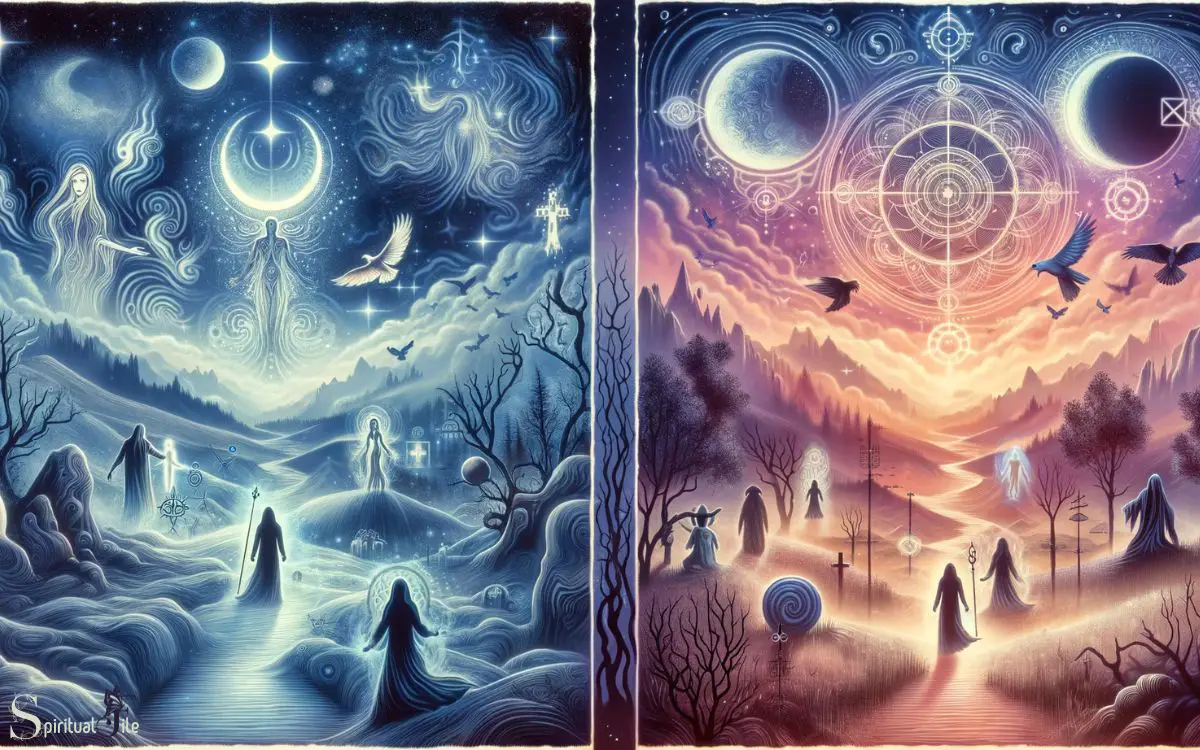
Here are some insights to consider:
- Cultural Influences: The interpretation of paranormal experiences during sleep paralysis can be influenced by cultural beliefs and personal perspectives.
- For example, in some cultures, sleep paralysis is attributed to supernatural entities, while in others, it may be seen as a medical or psychological phenomenon.
- Neurological Factors: Scientific research suggests that the brain’s state during sleep paralysis can contribute to vivid hallucinations and sensations of a paranormal nature.
- Understanding the neurological basis of these experiences can provide a different perspective.
- Psychological Impact: Encounters with paranormal phenomena during sleep paralysis can have a significant psychological impact, leading to fear and anxiety.
As we explore coping strategies and support, it’s essential to recognize the diverse interpretations of these experiences.
Coping Strategies and Support
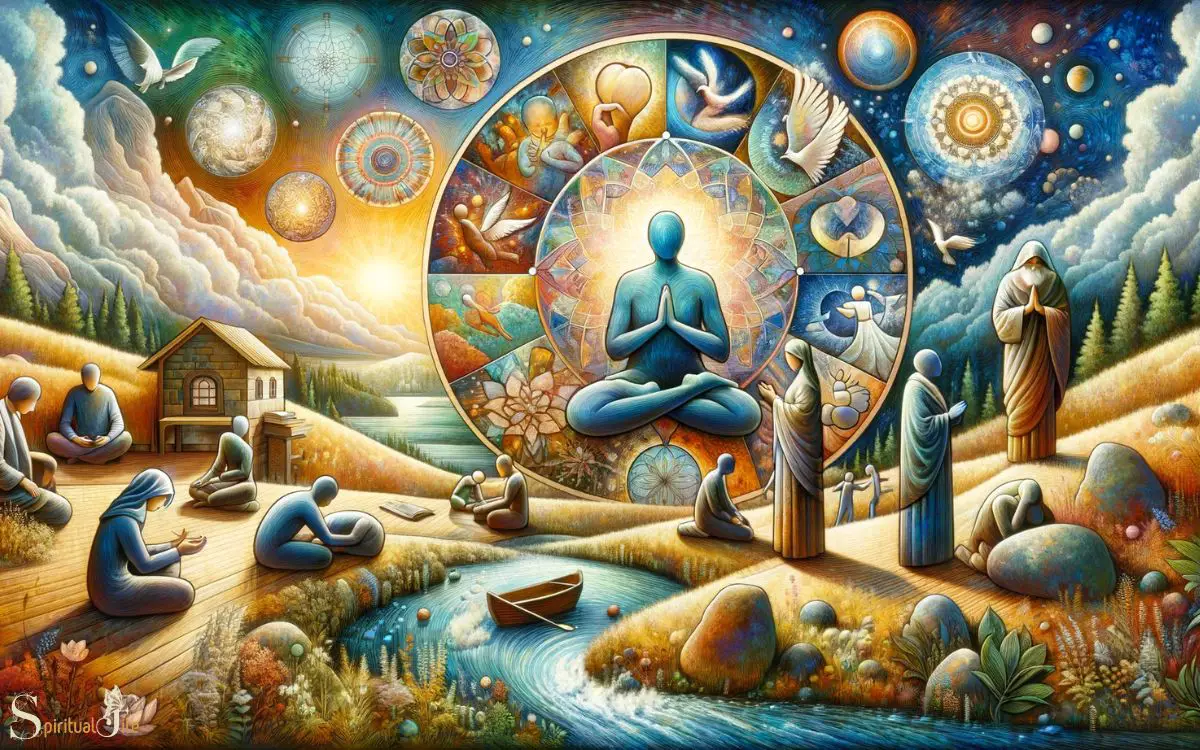
Feeling overwhelmed by sleep paralysis experiences, I found relief in seeking coping strategies and support. It’s crucial to understand that you’re not alone in this.
I discovered that sharing my experiences with others who have gone through similar situations was incredibly comforting.
Additionally, I learned various coping strategies to manage the fear and anxiety associated with sleep paralysis.
Here’s a simple table to illustrate some effective coping strategies and sources of support:
| Coping Strategies | Sources of Support |
|---|---|
| Deep breathing exercises | Support groups |
| Mindfulness meditation | Counseling services |
| Creating a calming bedtime routine | Online forums |
| Seeking professional help | Trusted friends and family |
| Educating myself about sleep paralysis | Books and articles on the subject |
By utilizing these coping strategies and seeking support, I was able to navigate through the challenges of sleep paralysis more effectively.
Are Sleep Paralysis and Sleepwalking Both Non-Spiritual Conditions?
Sleep paralysis and sleepwalking are both non-spiritual conditions, despite the element of spirituality often associated with sleepwalking. Sleepwalking, although intriguingly connected to higher states of consciousness in some cultures, is primarily a sleep disorder caused by a disrupted sleep pattern. Similarly, sleep paralysis is a temporary inability to move or speak during sleep, caused by abnormal sleep-wake transitions. Both conditions have scientific explanations rather than spiritual origins.
Debunking Myths and Misconceptions
I’ve often heard people attribute sleep paralysis to spiritual causes, but it’s important to consider both scientific and cultural factors. There’s a lot of misinformation and misunderstanding surrounding this phenomenon, and it’s crucial to debunk these myths and misconceptions.
Exploring the intersection of spiritual beliefs and scientific explanations can provide a more comprehensive understanding of sleep paralysis.
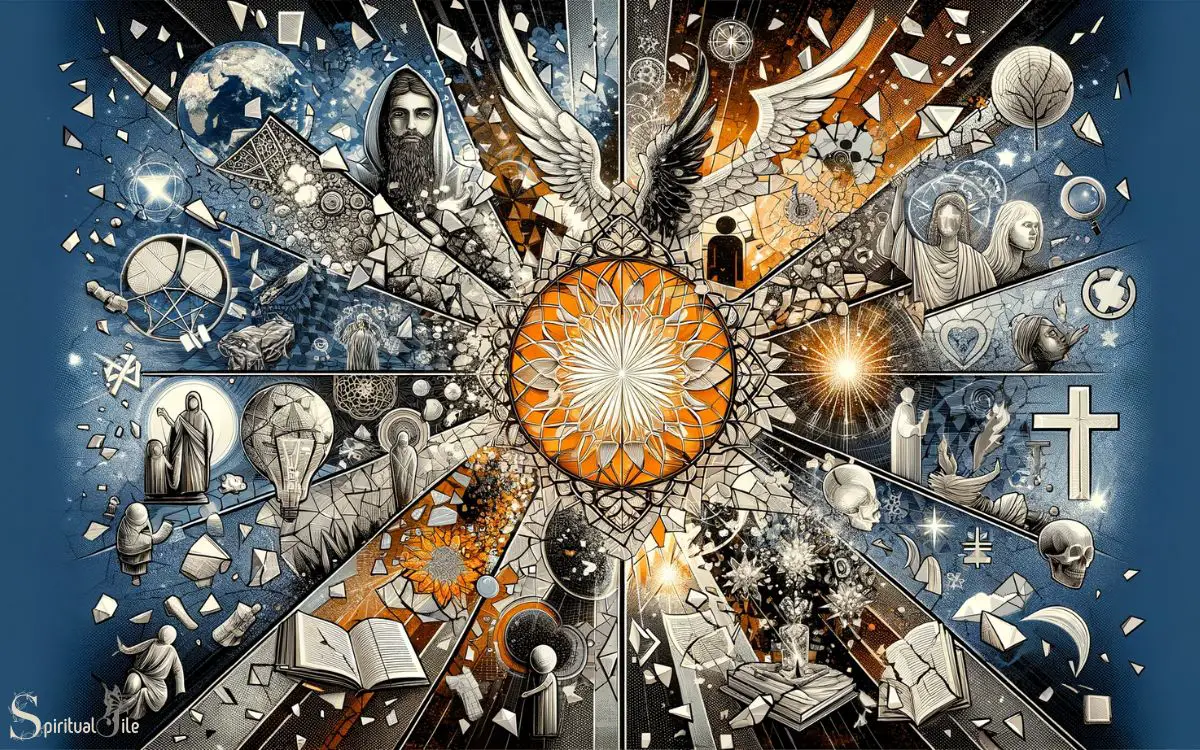
Spiritual Vs. Scientific Explanations
Often, people mistakenly attribute sleep paralysis to spiritual causes, but in reality, scientific explanations offer a more accurate understanding of this phenomenon.
As someone who has experienced sleep paralysis, I can attest to the confusion and fear it can provoke.
Here are some key points to consider:
- Physiological Factors: Sleep paralysis occurs due to the overlap of REM sleep and wakefulness, leading to the temporary inability to move or speak.
- Neurological processes and brain activity during REM sleep contribute to this phenomenon.
- Cultural and Religious Beliefs: While spiritual explanations are deeply rooted in some cultures, it’s essential to approach the subject with an open mind and consider scientific evidence.
- Understanding cultural perspectives can offer insight into varying beliefs about sleep paralysis.
- Treatment and Coping Strategies: Acknowledging the scientific basis of sleep paralysis can lead to seeking appropriate medical and psychological help, ultimately improving one’s well-being.
Cultural Influences on Perceptions
Growing up in a diverse cultural environment, I have encountered various beliefs and misconceptions surrounding sleep paralysis. Cultural influences play a significant role in shaping perceptions of sleep paralysis.
Here are some common myths and misconceptions debunked:
| Myth/Misconception | Debunking |
|---|---|
| Caused by evil spirits | Sleep paralysis is a natural phenomenon related to the REM stage of sleep. |
| A punishment for wrongdoing | It is a result of disrupted sleep patterns, stress, and genetics. |
| Only affects certain cultures | Sleep paralysis occurs worldwide, with cultural interpretations varying. |
| Always accompanied by supernatural experiences | While some may have hallucinations, not everyone does. |
| Only a medical/scientific issue | Cultural beliefs can influence how individuals interpret and cope with sleep paralysis. |
Understanding the cultural influences on perceptions of sleep paralysis is crucial in dispelling myths and promoting accurate knowledge about this phenomenon.
Conclusion
In the end, sleep paralysis is like a mysterious dance between the mind and the body, weaving together science and spirituality like a beautiful tapestry.
Understanding its historical, biological, and cultural aspects can help us demystify it and find comfort in knowing that we are not alone in our experiences.
By debunking myths and seeking support, we can navigate this ethereal realm with grace and confidence, turning our fear into curiosity and wonder.

